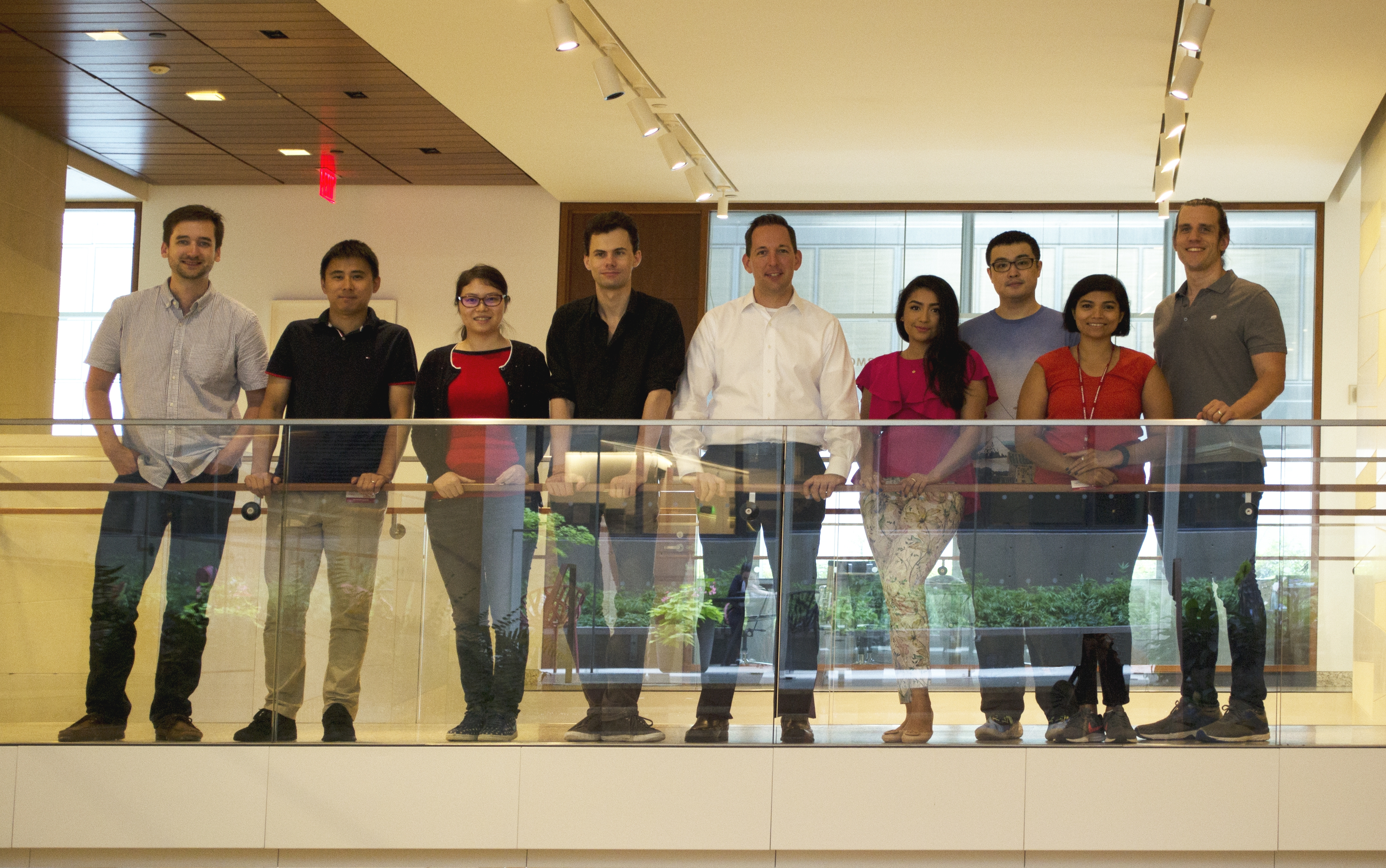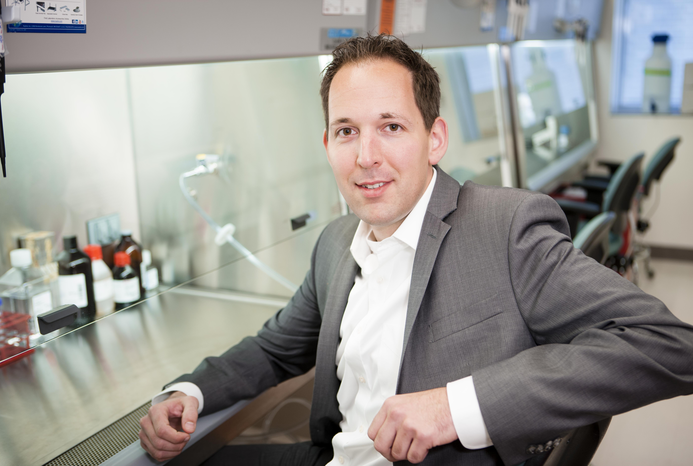Dr. Gregory F. Sonnenberg, an associate professor of microbiology and immunology in medicine in the Weill Department of Medicine’s Division of Gastroenterology and Hepatology and a member of the Jill Roberts Institute for Research in Inflammatory Bowel Disease at Weill Cornell Medicine, has been named an awardee for the inaugural CRI Lloyd J. Old STAR (Scientists Taking Risks) Program by the Cancer Research Institute.
The STAR program recognizes immunologists who are conducting high-risk, high-reward research in tumor immunology. Dr. Sonnenberg is one of five scientists to receive the honor following an international competition. As a recipient, he will receive a $1.25 million, five-year grant, to explore disruptive and uncommon cancer research paths. The CRI Lloyd J. Old STAR Award was named after the Cancer Research Institute’s founding medical and scientific director Lloyd J. Old, who was known as the “father of modern tumor immunology.”
“This is an incredible grant from a scientist’s standpoint,” Dr. Sonnenberg said. “Traditionally, this level of funding only comes from the National Institutes of Health. The Cancer Research Institute is really trusting us to take risks and make rapid scientific advances.”
Dr. Sonnenberg’s lab focuses on the immune system and its interaction with the body’s gut microbiome, which comprises trillions of microorganisms in the gastrointestinal tract. With this grant, he plans to examine the relationship between the immune system, microbiome and cancer.
“There have been a lot of fundamental studies demonstrating that microbes contribute to tumor progression and whether or not tumors respond to different therapies,” he said. “I’m excited to build on this research and mechanistically determine how we can harness the microbiome to modulate our immune system and fight cancer.”
“Our work for this grant is high-risk because of the areas we’re concentrating on, and because we bring new thinking from outside the field as to how we approach conducting cancer research,” Dr. Sonnenberg said. “This grant will allow cancer research to become a major focus in my lab, where we’re hoping to make paradigm shifts in how people think about the microbiome in the context of cancer.”
While traditional funding would require Dr. Sonnenberg’s team to have substantial preliminary data, this award allows them to ask risky questions that don’t have easy answers, he said.
“Being a part of this new program is an enormous honor and privilege,” Dr. Sonnenberg said. “I’ve very humbled and incredibly proud of the research that members of my lab are conducting. It would not be possible without all of their tremendous efforts.”
In addition to the Cancer Research Institute, research in the Sonnenberg lab is supported by the National Institutes of Health, the NIAID Mucosal Immunology Studies Team (MIST), the Crohn’s and Colitis Foundation of America, the Searle Scholars Program, the American Asthma Foundation Scholar Award, Pilot Project Funding from the Center for Advanced Digestive Care, an Investigators in the Pathogenesis of Infectious Disease Award from the Burroughs Wellcome Fund, a Wade F.B. Thompson/Cancer Research Institute CLIP Investigator grant, the Meyer Cancer Center Collaborative Research Initiative and the Jill Roberts Institute for Research in Inflammatory Bowel Disease.

The Sonnenberg Lab (from left to right): John B. Grigg, Dr. Lei Zhou, Dr. Wenqing Zhou, Dr. Jeremy Goc, Dr. Gregory F. Sonnenberg, Samah Mozumder, Dr. Fei Teng, Dr. Ann Joseph, and Dr. Nicholas Bessman. Credit: Jennifer Conrad.

